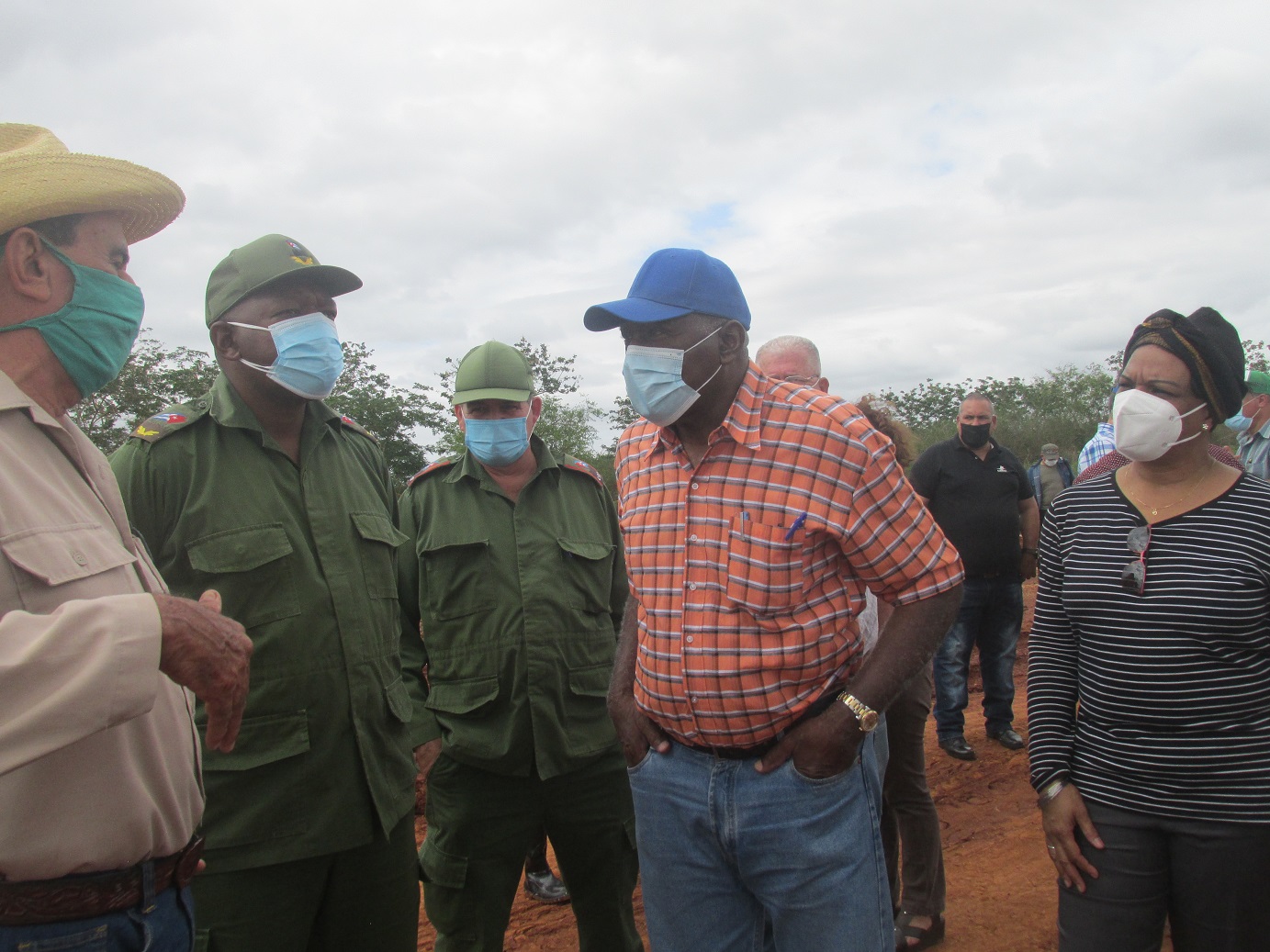Cuban Vice President Salvador Valdés Mesa visited in this province advanced producers in the livestock branch, areas of the Zaza-Ciego de Ávila canal, the Ciegoplast company and the only mini-industry in the territory specialized in the production of coconut candy, important committed stablishments with the development of the territory and the country.
Accompanied by Deputy Prime Minister Inés María Chapman Waugh, the Vice President of the Republic of Cuba exchanged with Omar Pérez Soriano, a rancher who just a year ago took advantage of the cooperative livestock production contract, as a way to encourage production and "fight" the adversities in a very deteriorated branch that seeks to shake off the onslaught that had it besieged for a long time.
Pérez Soriano explained that he took the dairy with nothing and had to buy «windmills, bulldozing, fix roads, paddocks, fences, warehouses, buy cattle and pay a good salary so that the new agreement works and it can amortize the investment "within 12 or 15 years", depending on the results and according to his calculations.
Both leaders learned that in just over 12 months, this rancher has about 200 cows, of which 85 are milking, and what is more important: in the dry season they average over three liters, there are no deaths. Also, with the arrival of spring, he plans to extract more than 1,000 liters a day from the udders of his females.
Valdés Mesa said that cooperated livestock production contracts work on an experimental basis and could become the most expeditious way to stop the deterioration of livestock and achieve the revival of the sector in a relatively short period of time.
In the presence of Carlos Garrido Pérez, member of the Central Committee of the Communist Party and president of the Defense Council in the province; Tomás Alexis Martín, vice president, and other managers and specialists from the hydraulic, sugarcane and agricultural sectors, the member of the Political Bureau of the Party visited areas of the Zaza-Ciego de Ávila Canal, which over 40 kilometers must be filled in the next five days.
There, he learned that the first beneficiaries with the waters will be five ponds belonging to the La Teresa spawning grounds center, in the municipality of Venezuela and areas of the Ramón Domínguez de la Peña Agricultural Production Cooperative (CPA), in the territory itself.
In a cane field that will be benefited by the waters of the canal, the leader perceived the poor condition of the plantations. «The water that we supply to the sugarcane must be rewarded with yields that exceed 80 tons per hectare, approach 100 ones and, if possible, exceed that figure. That is what the country needs, "he said.
After learning about the potential for food production in the area and the Cubasoy company, Valdés received a detailed explanation of the objects of works related to the Central-East transfer.
Roberto Pupo Verdecia, general director of the Engineering Services Company, Integrated Project Management (ESI DIP by its Spanish initials) Trasvases, explained that last year the results in the advance of investments in the company and its use value were in correspondence with the installed capacities constructions, and by 2021, it is expected to give use value to various construction objects associated with the Zaza-Ciego de Ávila.
The meeting with Alexander Ramírez Marrero, in La Candelaria, a mini-industry that had visited five years ago and remembered details of the previous meeting, became an entertaining dialogue. «I see innovation, progress. The change that the country needs is perceived," the Political leader said.
Valdés Mesa also visited the company Ciegoplast, which manufactures the high-density polyethylene pipes used in the water conductors of important works in the country and other accessories that substitute imports.





